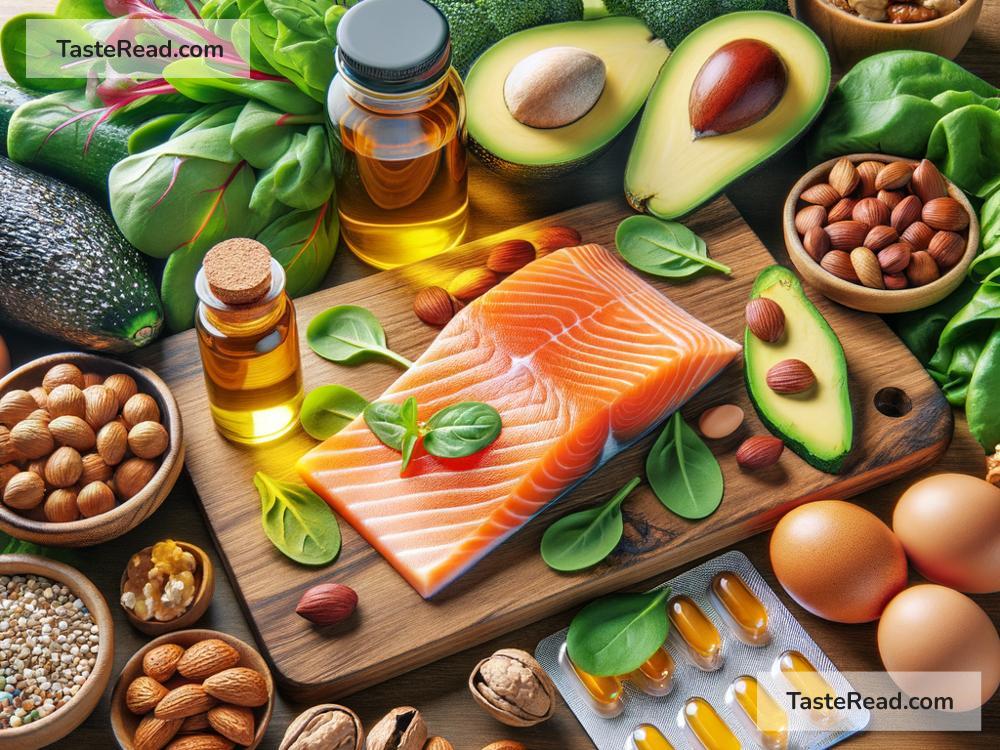The Role of Vitamin B12 in Metabolic Health
When people talk about staying healthy, vitamins often play an important role. You’ve probably heard of Vitamin C for boosting immunity or Vitamin D for strong bones. But there’s one vitamin that doesn’t get enough attention: Vitamin B12. It’s a crucial nutrient for your body, especially for your metabolic health. In this article, we’ll take a closer look at what Vitamin B12 does, why it’s so important for your metabolism, and how you can make sure you’re getting enough of it.
What Is Vitamin B12?
Vitamin B12 is a water-soluble vitamin, which means it dissolves in water and is carried through the bloodstream. It’s part of the “B-complex” family of vitamins, which includes several other B vitamins like B6 and B9 (folate). While all B vitamins are important for health, B12 has some unique functions that make it special for your metabolic health.
The human body cannot make Vitamin B12 on its own. You need to get it from food or supplements. Foods like meat, fish, eggs, and dairy products are great sources of B12. If you’re vegan or vegetarian, you may need to rely on fortified foods like plant-based milk or cereal, or take a B12 supplement.
Why Is Vitamin B12 Crucial for Metabolic Health?
Your metabolism is the process that converts food into energy. Every time you eat, the body breaks down carbohydrates, proteins, and fats. This energy powers everything you do—from breathing to thinking to exercising. Vitamin B12 plays a key role in this process.
Here are some of the ways Vitamin B12 supports metabolic health:
1. Energy Production
Vitamin B12 is essential for helping enzymes in your body turn food into fuel. It’s closely involved in the metabolism of carbohydrates, fats, and proteins. Without enough B12, your body might struggle to produce energy, leaving you feeling tired and sluggish.
2. Red Blood Cell Formation
Vitamin B12 works with other nutrients like folate to make red blood cells. These cells carry oxygen to the rest of your body. A lack of oxygen can slow down your metabolism and result in fatigue. When you don’t have enough Vitamin B12, your body may not create red blood cells properly, leading to anemia—a condition that zaps your energy and overall health.
3. DNA Synthesis
Vitamin B12 is involved in making DNA, which is the genetic material in your cells. Healthy DNA is vital for cell growth and repair. When your cells are functioning properly, they can maintain efficient metabolism and overall health.
4. Brain and Nerve Function
Your nervous system has a direct impact on how well your metabolism works. Vitamin B12 helps maintain healthy nerve cells and ensures signals between your brain and body are clear. A problem with metabolic health can arise if your nerves aren’t functioning optimally, and B12 helps prevent this issue.
Symptoms of Vitamin B12 Deficiency
Vitamin B12 deficiency can lead to serious health problems. Here are some warning signs that you might not be getting enough:
- Fatigue: Feeling tired even after resting or sleeping.
- Weakness: Difficulty carrying out everyday tasks because of low strength.
- Pale skin: A lack of B12 can cause anemia, which can make your skin look colorless or very pale.
- Numbness or tingling: A B12 shortage can damage nerve cells, leading to a pins-and-needles feeling in your hands or feet.
- Memory problems: Difficulty remembering things or feeling confused can sometimes be linked to B12 deficiency.
Some people are more likely to be deficient in Vitamin B12, including older adults, those with digestive issues (like Crohn’s disease), and vegans or vegetarians. If you have concerns, it’s always best to speak to a doctor and get your B12 levels checked.
How to Get Enough Vitamin B12
The good news is that preventing Vitamin B12 deficiency is usually simple. Here are some tips:
1. Eat B12-Rich Foods
Incorporate foods like meat, fish, eggs, and dairy into your diet, as they are naturally rich in B12. If you’re vegetarian or vegan, look for fortified foods like plant-based milk, breakfast cereals, and nutritional yeast to help meet your needs.
2. Take Supplements
If you have trouble getting enough B12 from food, you can take a supplement. Vitamin B12 supplements are widely available and come in many forms, including pills, gummies, and even injections prescribed by a doctor.
3. Check Your Digestion
Some people can’t absorb B12 properly because of digestive issues like pernicious anemia or conditions affecting the stomach lining. In these cases, your doctor might recommend a different method of getting B12, like injections or high-dose supplements.
Final Thoughts
Vitamin B12 is a powerhouse nutrient that plays an essential role in keeping your metabolism—and the rest of your body—healthy. From producing energy to supporting red blood cells and nerve function, it’s clear why this vitamin is so important.
Making sure you get enough Vitamin B12 doesn’t have to be complicated. Focus on eating a balanced diet with plenty of B12-rich foods or supplements if needed. If you ever notice symptoms like fatigue, weakness, or memory problems, don’t ignore them—these could be signs of a deficiency.
By taking care of your Vitamin B12 levels, you’re supporting your metabolism and giving your body the tools it needs to thrive. Take charge of your health—your body will thank you!


